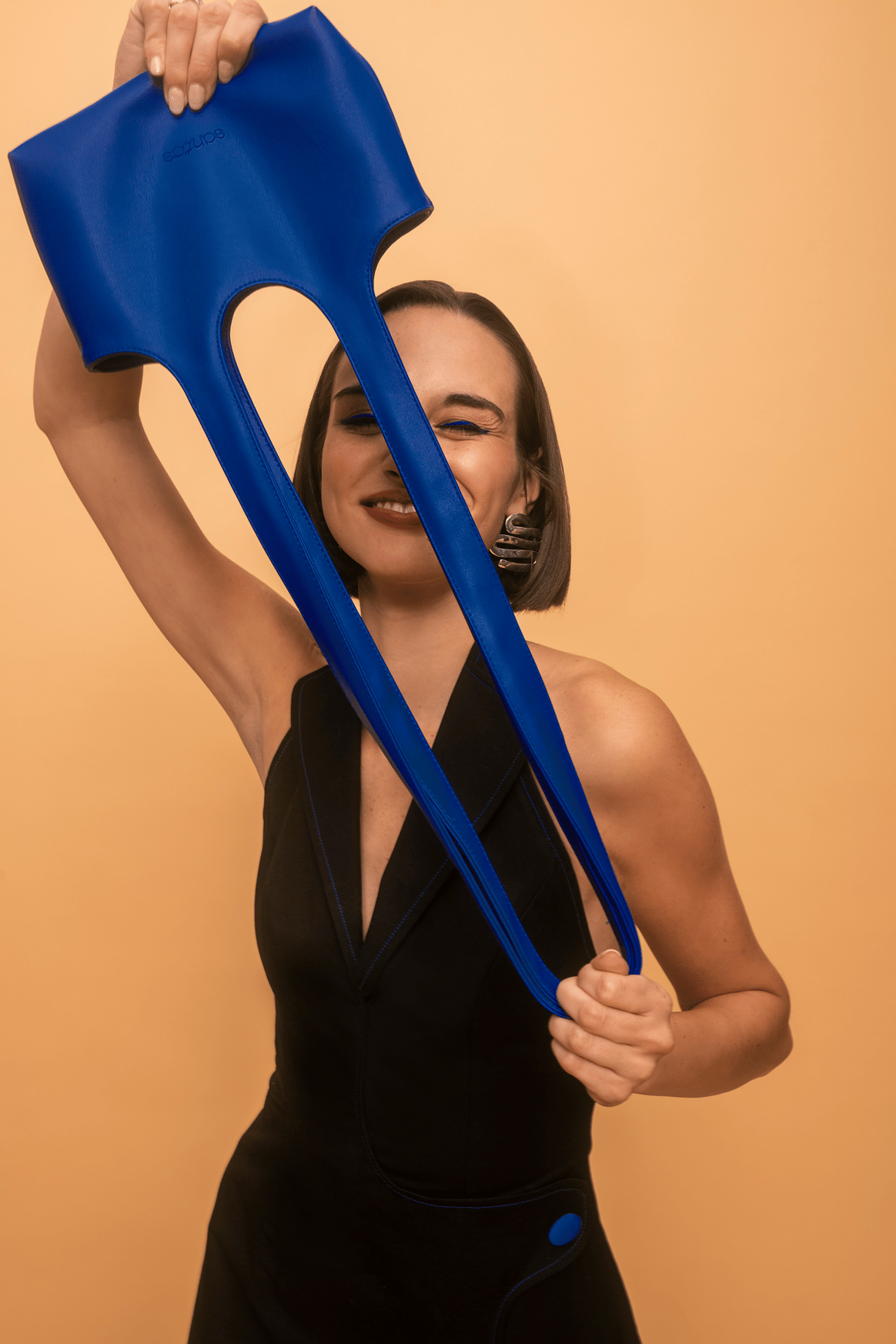Engaged in the clothing industry for 20 years.

Meet Santos by Mónica, the NYC brand making handbags from cactus leather
Lower Manhattan is strewn with trendy haunts and independent boutiques that line the compact streets. Near the corner of Canal and Ludlow sits Santos by Mónica, an accessory and apparel shop founded by Mónica Santos.
With the Lower East Side as her backdrop, Santos is one of many emerging designers that represent the cherished diversity of the New York City neighbourhood—and what she intended as a ten day popup shop turned into a permanent brick and mortar location.
Known for her use of cactus leather and modern retro aesthetic, Santos has built a community around her self-started label. Operating out of a New York address, e-commerce site, and a number of stockists including the MOMA Design Store, Santos’ brand has catapulted in visibility since her early pandemic start on social media.
The beginning
After ten years of designing bags for luxury and fast fashion companies, Santos was inspired to start her own brand after reflecting on her prior work’s environmental impact. “There were a lot of different moments that aligned at the same time. I was living in San Francisco working for a fast fashion brand…I never thought twice about what I was doing,” said Santos. After being immersed in San Francisco’s eco-conscious culture, “seeing those two opposing values right next to each other” prompted Santos to reevaluate her approach.
The early days of the Santos by Mónica began with a few hand-sewn face masks and bags in Santos’ work studio. “I wanted to take a step back and embrace the slow process of hand making things,” said Santos. The discovery of biomaterials developed her own idea of creating bags out of these textiles, eventually selecting cactus leather as her primary material.
Sourced from Mexico, cactus leather is a soft but durable material that mimics its animal counterpart in feel, retaining its quality for up to a decade.
Completely bio-based, the cacti used is not only chemical-free and regenerative, but also requires less water than traditional leather processes due to its rainwater origins of growth. Additionally, the cactus leather’s polymers are derived from plant oils, whereas other alternatives primarily consist of plastic polymers.
Originally starting with three metres of material and only one of each style, Santos by Mónica now offers five different handbag silhouettes in a range of colours and patterns. With prices ranging from 255 dollars to 395 dollars, the handbags are made from cactus leather with cotton cotton lining. The natural fibres are coupled with locally sourced hardware, and are made in small batches.
Brand inspiration
With a lot of eyes on Santos by Mónica from online followers to local habitués, Santos’ popularity can also be attributed to her distinct branding.
“I grew up on an island surrounded by a million colours…My brand is a true reflection of my upbringing in terms of colour,” said Santos, decidedly eschewing the common neutral tones many sustainably-focused brands opt for in order to add a playful and exciting element to the scene.
Stylized with a functional focus and different personas in mind, each bag has a “different personality,” said Santos. “The Dolores bag, for example, is an elongated tote meant for a very minimal person who’s going to work and wants to have their laptop inside, but also sometimes wants to go to the park with a bottle of wine that fits perfectly.”
Ethical approach
As Santos aims for 15 percent or less internal waste, finding ways to be more sustainable goes beyond the textile itself. From minimum-free orders and reselling unused waste from other partners, Santos’ relationship with the suppliers allows her to cut down on excess on her end—a vital part of any business with sustainability goals. “I can’t put a hundred orders in because it goes against the values of my business. But I can go little by little as they start flowing in,” said Santos.
While having a store creates its own set of challenges, operating fully e-commerce would limit Santos’ opportunity to connect with her audience and the opportunity to customise their purchases for further longevity.
“At the end of the day, you want to sell a product people can cherish and love for years to come,” said Santos. Whether adding a different colour in the lining or customised snaps, Santos accommodates any kind of personalised alterations to make sure her products avoid the landfill.
Having a storefront as a business that uses novel innovative materials is essential in establishing a customer base. As many consumers are new to biomaterials, the ability to interact with them makes way for more meaningful sales.
“I’m trying to be as sustainable as possible and I want to set an example for other brands and designers,” said Santos. For her, transparency is key in not only upholding standards but also building trust with her consumers. “Say every little detail in the process; at the end of the day, you will create stronger brand loyalty with that.”
A proprietor of store events and public outreach, Santos’ year ahead consists of a lively calendar, including yearly popups in domestic and international locations. As she works through future plans of placing business roots in her home country of Puerto Rico, her main focus is keeping her New York City community a sanctuary of sustainable aspirations.

